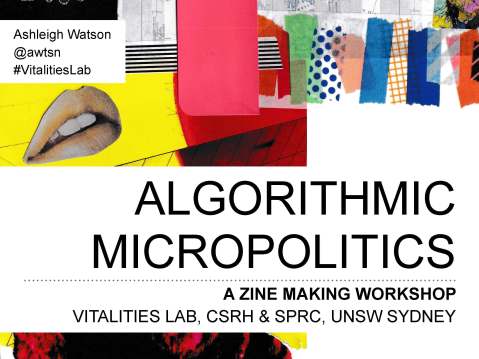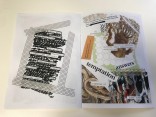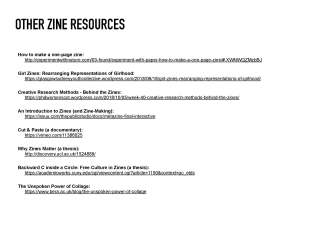
On Monday September 9, a group of researchers joined us for a workshop on the topic of algorithmic micropolitics. The workshop was held by the Vitalities Lab, Centre for Social Research in Health and Social Policy Research Centre, UNSW, Sydney. Bringing together zine-making and digital data, we collaboratively made a zine to critically consider how we experience algorithms in everyday life. This workshop drew on and was a primer for some of the arts-based and co-design work we are doing in the ARC-funded project ‘Living with personal Data: Australians’ Understandings and Practices’.

To guide us in thinking about algorithmic micropolitics, we drew on excerpts from Taina Bucher’s 2018 book If… Then: Algorithmic Power and Politics and Deborah Lupton’s forthcoming book Data Selves: More-Than-Human Perspectives.
Chapter 5 of Bucher’s book focuses on ‘the barely perceived transitions in power that occur when algorithms and people meet’ (2018 p. 93). To start our discussions, before we dove into the cutting and pasting, we considered the question she poses at the start of this chapter: ‘When do people encounter algorithms, and what responses and imaginations do these encounters generate?’ (Bucher 2018 p. 93).
We also considered Lupton’s focus on ‘what personal data assemblages allow bodies to do, and how they come to matter in people’s lives’ (2019). We adopted a similar approach that she does, drawing on feminist new materialism, with our zine making practice: we aimed to ‘think more seriously and deeply about what is at stake when human-data assemblages are de-personalised and de-humanised’ (Lupton 2019).
Zines are an interesting creative form useful for considering things like micropolitics. They affectively and materially draw the personal and the political together on the page. Zines have a long history as a DIY, anti-establishment medium that poses an alternative to mainstream voices, representations, topics and issues. They resist the kinds of logics that can seep into academic workshops, like metrics and quantifiable ‘impact’, so are useful for trying to think (and do) in different ways than usual. Some recent social researchers have taken up zine-making as a participatory social research method (see resources below).
We made two kinds of zines at the workshop. The first was a collaborative endeavour – we made pages based on our discussions and reflections on what Bucher calls ‘the felt presence of algorithms in everyday life’ (2018 p. 99). The pages of this A5-sized zine sit in dialogue together, make use of quotes by Bucher and Lupton, and repurpose text and images from magazines and children’s books. You can download a print-ready version of this zine here (print double sided, flipped along the short edge).
We also made individual ones – small, 8-page zines made from single A4 pages. Some of the resources below have guidelines for making these.
Zine-making is a lively method for thinking with and against digital technologies. This zine engages with the affective encounters we have with data, digital tech and algorithms in everyday life.
More creative workshops from the Vitalities Lab are coming soon!

















Reblogged this on This Sociological Life.
LikeLike